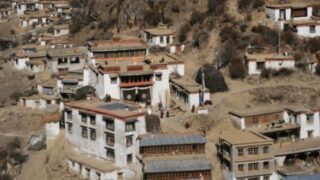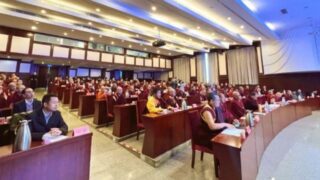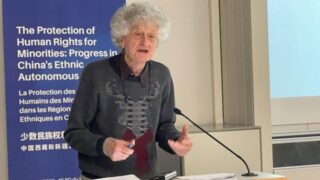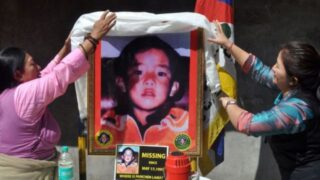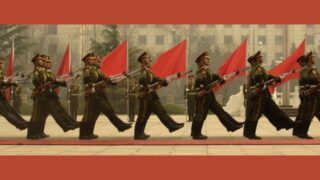Former monk and popular author from Amdo was accused of “disrupting social order.”
by Lopsang Gurung


In the last month of October (relatives were not informed of the exact date of the decision), popular Tibetan author Dhi Lhaden was sentenced to four years in prison for “disrupting the social order,” an accusation often used against political and religious dissidents. He had been arrested in June 2019, and had remained for more than two years in pre-trial detention.
Dhi Lhaden is a former monk born in 1971 in a village called Dida in Banma county, Golog Tibetan Autonomous Prefecture, Qinghai province, i.e., in what was once part of the Tibetan province of Amdo but is now outside of the Tibet Autonomous Region (TAR, recently renamed by the CCP as Xizang Autonomous Region, XAR). At age 13, he became a monk in his county and took the name Thubten Lobsang Lhundup. At age 15, he moved to the Larung Gar community in Sêrtar County of Garzê Tibetan Autonomous Prefecture, in Sichuan province, i.e., in the former Tibetan province of Kham. The community made headlines in 2016 when its buildings were demolished, and monks and nuns evicted, with some of them taken to re-education camps.
Meanwhile, Dhi Lhaden had moved to TAR to continue his studies there, but political conditions made this project difficult. He did not continue his monastic life and, since 2008, traveled around Tibetan communities interviewing Buddhist monks, nuns, and lay devotees. In 2011, he published abroad, with the help of the Tibetan Center for Human Rights and Democracy (TCHRD), the book in Tibetan “Words Uttered with Life at Risk,” which was presented in Geneva at the 16th session of the U.N. Human Rights Council.
He was put under surveillance in China, and his freedom of traveling outside Golog Tibetan Autonomous Prefecture was limited. He advocated “resistance through cooperation with the law,” i.e., a non-violent and peaceful criticism of the CCP, inspired by figures such as the Mahatma Gandhi and Martin Luther King, Jr. His book, “The Art of Passive Resistance” was published in Tibetan in 2015, and an English translation was made available for free download by TCHRD.
“In order to stand in solidarity with my nation, which is going through deep crisis, Dhi Lhaden explained, I felt it was my responsibility to do something. As a nyuk thok pa, holder of the pen, the least I could do is write.”
Paradoxically, a book advocating protest within the limit of the existing social order, led to the accusation that Dhi Lhaden was “disrupting social order,” and to the investigation and the arrest in 2019. The sentencing of Dhi Lhaden proves that even passive resistance “through cooperation with the law” is regarded as a crime by the CCP.


